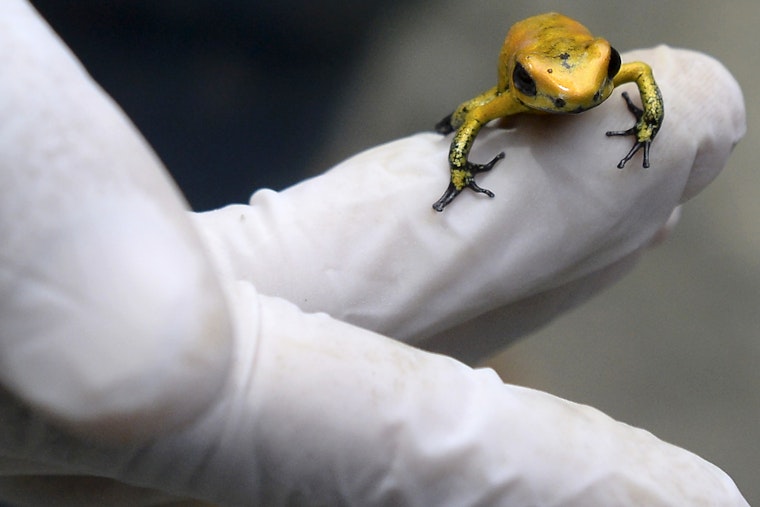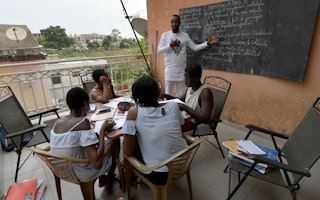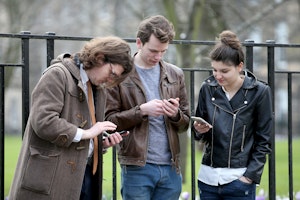Q&A: The Unjust Trial of Diego Gómez and the Necessity of Open Access

Last month, the Colombian civil society organization Fundación Karisma launched a crowdfunding campaign to support Diego Gómez, a biologist accused of copyright infringement for sharing scientific research online. Hannah Draper of the Open Society Information Program spoke with María Juliana Soto, project coordinator at Fundación Karisma, about why the case has become a major focus of those involved in the open access movement.
Who is Diego Gómez, and what has happened to him?
Diego Gómez is a 29-year-old conservation biologist. He was born and raised in Colombia, but he currently lives in Costa Rica. Back when he was a college student at Universidad del Quindío, in Colombia, Diego uploaded an academic paper on the platform Scribd.
It was a master’s thesis from a colleague at Universidad Nacional de Colombia; Diego cited the author’s name and made no profit from the upload. He uploaded the thesis because he believed that it would be useful for other people who were studying the biology of amphibians.
And now Diego is being prosecuted—and facing a maximum sentence of eight years—for sharing that academic document on the internet. He’s been roped into the judicial process for more than three years for doing something most of us do every day: sharing knowledge online.
What is his case’s current status?
On the 24th of May, Diego was acquitted. The court held that he had proven that the document he posted online was already available and that he did not received financial benefit from it and had no intention to harm the author. His intention was to share knowledge—that’s it.
However, the prosecutor challenged the first ruling on appeal before the Tribunal de Bogota, so the ordeal isn’t over. That is the main reason why Fundación Karisma started a crowdfunding campaign to cover the costs of the next phases of the judicial process.
What are the larger implications of this case?
Diego’s prosecution is another example of the disproportionate consequences of copyright overreach in the digital age. The basic question remains: why are we prosecuting students for sharing knowledge? Open access should be the default for scholarly publications, especially when public funds are used to produce the results.
How is Fundación Karisma trying to help?
By raising funds for two main purposes. First, to cover the legal expenses to face the appeal process and other possible legal challenges. And second, to fund the production of a case study so Diego’s experience can be used as a learning moment for the broader world and the open access movement.
How is the political system in Colombia responding to the case, if at all?
Diego’s case has gotten a lot of public attention, mostly because of social media conversations and press coverage. But the case hasn’t yet caused responses from the political system in Colombia.
In other countries, such as the United States, people can communicate directly to their politicians and can raise political awareness about specific cases—sometimes it’s as simple as making a call to your representative. In Colombia, things are bit different. And although it has been moving through the judiciary for a long time, the case is still in its early stages.
But we at Karisma expect that this subject will call the attention of politicians in the coming months, probably when the copyright reform debate starts over again.
How common are cases like Gómez’s, both in Colombia and around the world?
As far as we know, Diego’s case is a unique one in Colombia. We have heard, however, of a couple of similar cases, locally and internationally.
For instance: the case of a young man in a small city in Colombia that was condemned to two years in jail for buying 17 pirated CDs. There is also the story of a professor in Argentina who was prosecuted for uploading translations of the philosopher Derrida. The publisher sued him, but he was ultimately found innocent.
Still, many cases related to intellectual property take place in Colombia (and abroad); it’s just that, most of the time, we don’t learn about them.
Fundación Karisma is a grantee of the Open Society Foundations.

